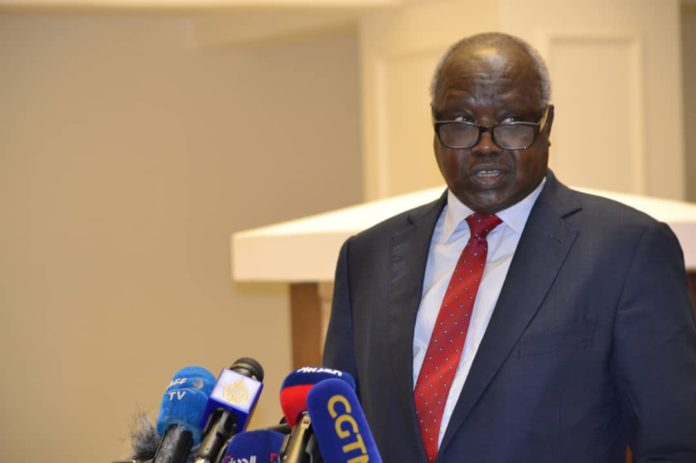Juba, June 17 — Nial Deng the Minister of Presidential Affairs, announced on Wednesday that the government of South Sudan agreed together with the armed opposition led by Dr. Riak Machar the First Vice President of the Republic, on State allocation, after a long time of deadlock.
The five parties to the revitalized peace agreement in South Sudan had failed to reach a satisfactory compromise on the division and distribution of states according to percentages given to each party.
According to the agreement, the percentage of the government is 55%, the armed opposition led by Riek Machar 27%, the South Sudan Opposition Alliance (SSOA) 10%, and other political parties (OPP) 8%.
“The two main parties reached a compromise on the division and distribution of states after a four-month dispute due to the government’s rejection to give the Upper Nile state to Opposition the most-rich state with oil,” said Nhial Deng Nhial, Presidential Affairs Minister.
The President of the Republic, Salva Kiir Mayardit, announced last February that the country had returned to the system of ten states plus three new administrative Area, after the leader of the armed opposition, Dr. Riek Machar and some opposition parties, refused to keep the country on the 32-state system in which the government stuck.
“Deng” explained that the (6) states will be allocated to the government to which are Central Equatoria, Lakes, Warrap, North Bahr El Ghazal, Eastern Equatoria, and the other Oil Rich state which is the Unity state, meanwhile, the (3) states given to armed opposition are the Upper Nile state, Western Equatoria, West Bahr El Ghazal, and one (1) state given to South Sudan Opposition Alliance (SSOA) which is Jonglei State.
The revitalized peace agreement had given 8% to other political parties, but the two principals Kiir the President of South Sudan, and his First Vice Dr. Machar meeting failed to allocate it.
The dispute between the parties to a revitalized peace agreement on the resolution of conflict in South Sudan (R-ARCSS) over states distribution continued for about four months, leaving a constitutional vacuum that prompted the regional parties, international guarantors of the agreement, in a statement to them appealing to both government and opposition to resolve the states matter.

